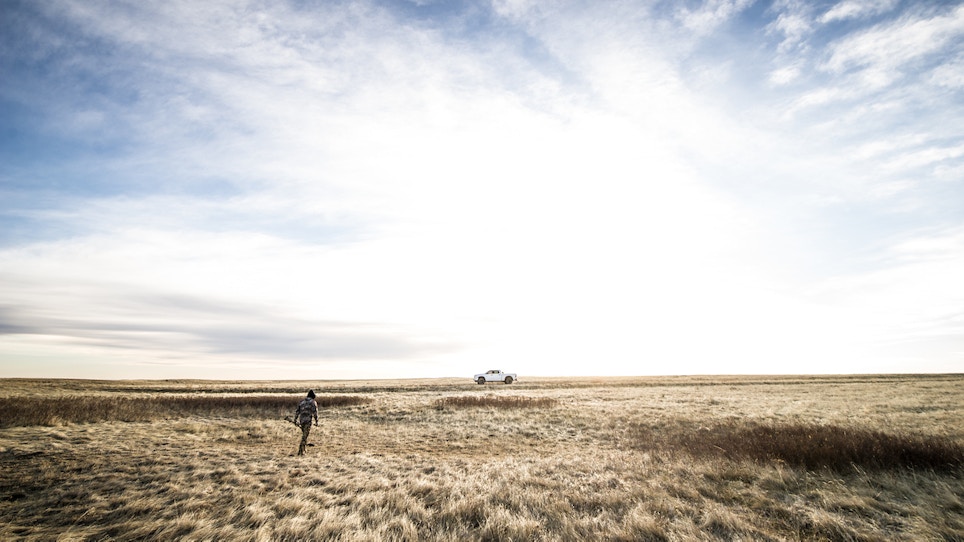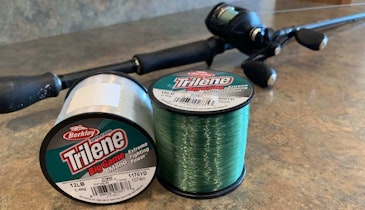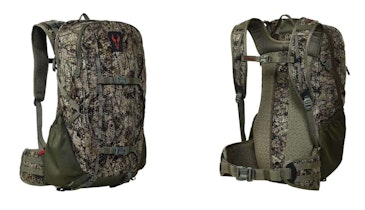American outdoorsmen and women are blessed with something often taken for granted, but not available in few other places on earth. That something is the millions of acres of public land open to hunting, fishing and recreation.
Those lands belong to all of us, and within the parameters of hunting and fishing seasons, some road closures, and very few other limitations, we can come and go as we please all year around. I cut my teeth hunting western public lands both in my home state and many others. Some 50 years later some of the most productive and fun hunting I do each year occurs on public land.
When utilizing public land you can be sure that you’ll often run into other people. Most of them will be just like you — Average Joe’s out to do their best and have fun. Sadly, some of the people you meet will be total all-about-me jerks that will crowd you, trash the place and have no respect for anyone else. Fortunately they’re in the minority, but be aware and prepared to deal with it.
Related: Hit BLM public lands in these 4 states
That said, here are my Top 10 unwritten hunting laws for public land.
10. Scout It Out
A big part of any hunt is scouting. Today you can use all sorts of internet-based scouting tools to get an overview of the land before you ever get there. However, while this is great, nothing beats boots on the ground. Hiking the terrain will reveal subtle nuances not visible from satellite photos or topographic maps. In my mind, first-hand knowledge of the landscape is the most important piece of the puzzle.
9. Show Up Plenty Early
Northing fries me more than to have risen in the middle of the night, made my way to my spot, then have some knucklehead show up right before shooting light and hiking right through my zone. Conversely, if you oversleep, take pains to avoid other hunters you know are in the area.
8. Plan B
Most public land hunting operates on a “first come, first served” basis. There are exceptions (an assigned area on a national wildlife refuge for waterfowl hunting comes immediately to mind), but generally speaking, the early bird gets the spot. Sooner or later you’re going to get beat to your spot. If that happens, I have a Plan B in mind. If I run into the other hunters I wish them a quick “Good luck,” then skedaddle to my alternate location as quietly as possible so I don’t disturb their hunt.
Related: Public land waterfowl destinations
7. Give Me Some Elbow Room
When there are other hunters in the area, try and keep a safe and sane distance between parties. If I’m dove or duck hunting, I’ll talk to the other folks and try and establish parameters that suit us both. This allows for good shooting for all and, most importantly, safety. I generally like to be at least 100 yards away from other dove hunters, several hundred yards away from other waterfowlers. For deer, elk and turkey hunting, the further away the better -- though I have had mule deer hunters I’ve never met walk within 20 yards of me, sit down, and start glassing the same bowl I’ve been glassing for hours. Just use common sense and common courtesy.
6. Don’t Touch Anything
You will at some point in time run across items like tree stands, game cameras, ground blinds, decoys, chairs and who knows what all on public land hunts. The rule is simple -- if it isn’t yours, don’t touch it. Nothing more fun than walking in to your own tree stand or ground blind and finding another hunter using them (both have happened to me.) Or finding your own blinds, cameras or stands stolen, which has also happened.
5. The Jerk Factor
One day you’re going to meet people that are total jerks. These folks can run the gamut from other hunters to hikers to private landowners who think the public land is their own (I’ve had ranchers who hold a cattle grazing lease on national forest and BLM lands tell me I couldn’t hunt public land, which of course is ridiculous), to anti-hunters. The best thing to do is keep your cool and avoid confrontation. If things escalate and the other party continues being jerkazoids, I’ve found it best to suck it up, leave, and immediately call the local game warden and ask for assistance.
4. Breaking A Sacred Trust
If you are blessed with an invitation to go hunting with someone who knows that lay of the land and is a real hardcore killer, get in the truck and count your blessings! But do so with the understanding that taking you to their “secret spot” is not an open-ended invitation for you to make the area your own to hunt any time you wish. Yes it’s public land and yes, legally, you can do so but, if you do, you can be assured that person will never, ever show you another place to go. Ever. I’ve seen such transgressions destroy life-long friendships and break apart families. I call it getting a ticket for bad manners.
3. Respect Mother Nature
Growing up my dad taught me to always treat the land as though it’s your own property. Pick up your trash, including empty shotshell hulls. Make sure all campfires are put dead out and do your best to leave the land looking better than when you arrived. I always have extra trash bags in my truck. After a day of bird hunting or target shooting, I spend an hour or more picking up the trash left by other jerkazoid weedwhackers.
2. Helping Find Shot Game
At some point you’ll run into a hunter that has shot something he can’t find. Might be a quail, a dove, a duck, or a deer or elk. If they ask for help in finding it, I believe we have an obligation to the game we hunt to lend a hand. Doesn’t mean I’ll spend all day, but I will spend hours and only help legally. By that I mean, if the animal has crossed a fence and entered private land, I stop until permission has been obtained from the landowner to proceed.
1. Safety First
I started accessing public lands when I was a high schooler back in the late 1960’s backpacking into the high altitude of California’s Sierra Nevada mountains. I lived in Alaska for 15 years and extensively hunted the state’s wild public lands, and have backpack hunted in several states in the Rocky Mountain West. A lot of this I’ve done alone. Doing so I learned that I was entirely on my own out there. You have to be able to fix anything that breaks -- including yourself. Take wilderness survival and first aid classes, carry the necessary kit to fix stuff, carry some sort of reliable communication device, and always tell somebody where you’re going and when you expect to return.
Related: VIDEO: Use a GPS to predator hunt public land
What’s your experience meeting others when hunting public land? Drop me a note at brobb@grandvewmedia.com and share them with me.
Featured image: Nick Trehearne







